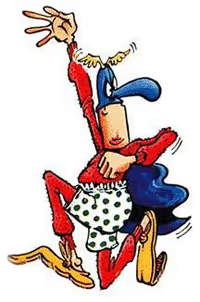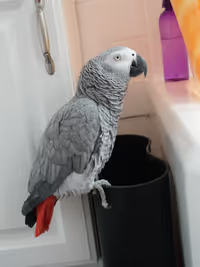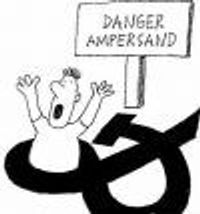The death of Sandra Bland
#25The death of Sandra Bland
Posted: 7/23/15 at 8:04pm
"What about the plastic garbage bag? How did that get into her cell?"
I find this to be the most pressing question they haven't answered yet.
Also very curious why her mug shot was taken in a prison jumper.
#26The death of Sandra Bland
Posted: 7/23/15 at 8:49pm
I do doubt she was dead for three days. I do question whether or not correct police procedure was used. They might really well have realized after she passed, that they had not gotten a booking photo.
#27The death of Sandra Bland
Posted: 7/23/15 at 9:46pm
I have seen the mug shot and I don't think she was dead when it was shot. The prison jumper is...interesting but overall I think this issue distracts from the case. I'm glad interest still remains for this and has not washed away with the internet tides of new distractions, new outrages. And of course leave it to LH to suggest that if she had just licked the officer's boot like a good negro all this would have blown over.
FindingNamo
Broadway Legend Joined: 7/22/03
#28The death of Sandra Bland
Posted: 7/23/15 at 10:16pm
Say you don't want dead cops! SAY YOU DON'T WANT DEAD COPS!
LarryD2
Broadway Legend Joined: 9/1/14
#29The death of Sandra Bland
Posted: 7/24/15 at 1:07pm
12 important questions about the Sandra Bland arrest, answered by a lawyer
#30The death of Sandra Bland
Posted: 7/24/15 at 2:13pm
The smallest details. Why was NBC's John Yang allowed in her cell, where her meal tray remained? Why would any journalist be admitted to a crime scene, almost immediately afterwards? If the scene had been inspected, impossible, why wasn't the meal tray removed and printed and (fill in the blank; we've all seen CSI)? Why did they want the media to have such access, and to almost invite photography and video?
#31The death of Sandra Bland
Posted: 7/24/15 at 2:13pm
I was actually finding that article sort of interesting. But as a lawyer, she should know better than to make statements like, "She was justifiably frustrated – there was no reason, he was clearly exercising his discretion in a discriminatory manner because he didn’t think she, as a black woman, was entitled to ask questions or exercise her rights." I really liked the objective facts regarding the law until that point. That just calls into question her bias regarding the facts and she starts muddying personal opinion with legal opinion, which was supposed to be the whole point behind the article in the first place. I don't begrudge her having or expressing a personal opinion (and she may very well be right), but she either needed to clarify and delineate her facts from opinions or just stick to facts and a legal opinion if her purpose is to analyze the case "as a lawyer".
#32The death of Sandra Bland
Posted: 7/24/15 at 2:18pm
I was reading it and when I came to that sentence I just stopped.
He and his article lost all credibility at that point.
ScottyDoesn'tKnow2
Broadway Legend Joined: 1/22/14
#33The death of Sandra Bland
Posted: 7/24/15 at 2:37pm
Who is "he?"
I do think she was giving her legal opinion since racial discrimination is a huge part of the case. Legal opinion doesn't mean unbiased, and it's not always totally objective and cut/dry. The facts of this case has been muddled for a long time.
#34The death of Sandra Bland
Posted: 7/24/15 at 2:55pm
We live in a culture currently besotted with the healing/restorative value of cannabis. As long as it's about suburban white users finally being allowed their weed without being treated like criminals. But when it comes to people of color, the reefer madness mindset is alive and well.
#35The death of Sandra Bland
Posted: 7/24/15 at 3:05pm
"Who is "he?"
I do think she was giving her legal opinion since racial discrimination is a huge part of the case. Legal opinion doesn't mean unbiased, and it's not always totally objective and cut/dry. The facts of this case has been muddled for a long time."
Reading an officer's mind and telling us what he was thinking is not legal opinion.
No matter how you frame it, she just made something up.
ScottyDoesn'tKnow2
Broadway Legend Joined: 1/22/14
#36The death of Sandra Bland
Posted: 7/24/15 at 3:25pm
Who is "he" in the "he and his article lost all credibility"?
Also, the attorney was making an argument, not simply stating legal doctrine. Legal arguments do go into mens rea and state of mind since you have to meet certain elements to prove certain kinds of cases. Of course, she's not conducting a trial or writing a legal brief but giving her opinion on the facts that she knows while still giving insight into how the laws can be interpreted or have been interpreted. I think dismissing the whole thing because you think she went too far with one statement is interesting for other reasons.
#37The death of Sandra Bland
Posted: 7/24/15 at 3:59pm
I'm not sure that's the regulation orange jail jumpsuit she's wearing.
#38The death of Sandra Bland
Posted: 7/24/15 at 4:07pm
Of course, she's not conducting a trial or writing a legal brief but giving her opinion on the facts that she knows while still giving insight into how the laws can be interpreted or have been interpreted.
"...he was clearly exercising his discretion in a discriminatory manner because he didn’t think she, as a black woman, was entitled to ask questions or exercise her rights."
This is all assumption and speculation, not based in fact or legal interpretation. The point of the article was to have questions answered by a lawyer. That sort of prejudicial assumption can be made by any lay person and lends no credence to the idea of legal perspective, analysis or interpretation. And yes, lawyers will use this sort of language during cross in a trial. And a good attorney will object and it would be stricken. Unless there was some sort of concrete evidence of admission on the part of the officer as stating this particular motive (of which there is not, at this point).
This article clearly is not a formal legal opinion, but it sure as hell tries to leverage the title of attorney to draw attention to itself. That sentence is where the article fails and a good attorney (or a good journalist) would have been more careful and concise. The article was pretty informative and enlightening until that point. This is the full title of the article:
GET THE FACTS
12 burning questions about the Sandra Bland arrest video, answered by a lawyer
So yeah, I don't think my expectation of a legal analysis of facts was unreasonable.
I think dismissing the whole thing because you think she went too far with one statement is interesting for other reasons.
Like what?
ScottyDoesn'tKnow2
Broadway Legend Joined: 1/22/14
#39The death of Sandra Bland
Posted: 7/24/15 at 4:44pm
As you know, headlines are often not written by the authors of the work themselves. And even if it was, she actually did answer legal questions sufficiently while adding her own opinions which you can disagree with.
In racial discrimination cases, especially in employment discrimination, you don't need a concrete admission of racial prejudice or discrimination (because it almost never happens that easily), but you can use evidence of past actions to show the reason given for what the plaintiff is arguing is discriminatory action is actually a pretext for racial discrimination. So in case where racial discrimination is relevant, a good attorney on cross would bring the department's history of racism up and ask if Ms. Bland's race played a part into the way he conducted himself during her traffic stop and arrest. Of course, a smart witness would simply deny. But because the attorney brought it up during the trial, she can definitely use it again for closing arguments if the narrative of the case related on racial discrimination and the actions of the officers involved.
I'm not saying this article was unbiased or that she obviously has a side picked. However, I don't think the attorney in question made any illusions that she wasn't picking a side. The actual black letter law questions she answered were solid and helpful. Everything else, I just took to be her own views of the facts that occurred. As an attorney, we always look at the facts from both sides, but looking at the facts, history of conduct (like this officer's history), and actions raises narratives that lead to logical (if arguable) inferences. That's part of legal work too.
I took the work as separate entities and am able to see where she stuck to answering legal doctrine and where she ended up narrating. I don't think the parts that stuck to answering questions like how the Supreme Court ruled that cops can arrest someone for traffic violations, or the differences between being detained/arrested, or anything like that is really impacted by her pro-Bland is a victim of racial discrimination bias.
Sure, if you were on a jury and she was called to testify, she could be impeached and her truthfulness would be in question, but I think it would be foolhardy to simply disregard the whole thing or call it a failure because of some conclusions she came up with rather than actually looking at all of her points and seeing which ones actually answered the questions answered and stuck. Even in Supreme Court opinions that I ultimately disagree with, there are always things in there I either have to concede with or realize the Justice has legal support. I think if she failed to answer substantive law, then yes, the article was a failure, but for embellishing her legal answers with her opinion, it may not be the best thing to do as it may prove distracting for some people, but she did not fail in answering legal questions. I also think the whole neutral/bias dichotomy in terms of answer legal questions is sort of false as well because some times picking a neutral sound is actually adopting the status-quo perception of how things went on. Maybe it would have been better if she said, "if one were to see the officers actions as racially discriminatory, then he would not have..."
#40The death of Sandra Bland
Posted: 7/24/15 at 5:25pm
I get what you're saying, but you have to admit, you can see how the article may be construed as misleading. I mean, look at the response to question 9:
9. At the very end of the video the arresting officer tells Bland she is under arrest. Was she not under arrest before when he told her she was going to jail?
As soon as she told her she was going to jail and had cuffs on her, she was under arrest. Basically, if you’re in handcuffs and you’re being detained for longer than it’s reasonable to investigate whether your driver’s license is good and you have insurance, you’re at least temporarily under arrest.
Why couldn’t he leave her alone? Obviously we know why. Because she didn’t show him the respect that is expected of black women which would be “yes massa, no massa.” She wasn’t a mammie. She was a sapphire. And she was asserting her rights. He asked her why she was annoyed and she answered him. And that’s it. It should have been over at that point. Anyone would have been annoyed.
I guess your expectations for the purpose of the article must have been very different from mine.
In racial discrimination cases, especially in employment discrimination, you don't need a concrete admission of racial prejudice or discrimination.
And in opinion articles, you don't need anything at all. I didn't realize this would flip back and forth from one to the other. I was very interested in the legal answers. Whoever is to blame, it's misleading and the agenda is quite clear. I'll just try and seek out a more objective assessment of the case.
#41The death of Sandra Bland
Posted: 7/24/15 at 5:51pm
#42The death of Sandra Bland
Posted: 7/27/15 at 5:27pm

#43The death of Sandra Bland
Posted: 7/27/15 at 6:02pm
"Larry. This is a truly heinous incident and I smell cover-up, racism, corruption and brutality all the way... But those of us saying so would benefit from sticking to the facts. She was not arrested because of failing to use a signal while changing lanes. She was arrested for what they considered "resisting arrest" and "assault on a law enforcement officer." Again, facts are crucial if we are to keep the number of doubters down. "
How can she be arrested for "resisting arrest" unless an attempt to place her under arrest has been made? That sounds like LE spin to me and hardly a fact.
#44The death of Sandra Bland
Posted: 7/27/15 at 6:44pm
I still can't believe that you can actually be placed under arrest for a moving violation.
A few years ago I was pulled over and received a ticket for a tail light being out. If I had been "sassy" to the officer (or been black), the cop (who was a jerk, for the record, and insisted I was "operating a death machine") could have ordered me out of my car and placed me under arrest.
#45The death of Sandra Bland
Posted: 7/27/15 at 7:35pm
Here's my question, as I have yet to be in jail:
Why is a trash bag (or indeed any trash receptacle) in a jail cell in the first place? Do inmates have that much garbage to toss out?
#46The death of Sandra Bland
Posted: 7/28/15 at 12:09pm
That's one of the ten questions everyone has.
Videos











